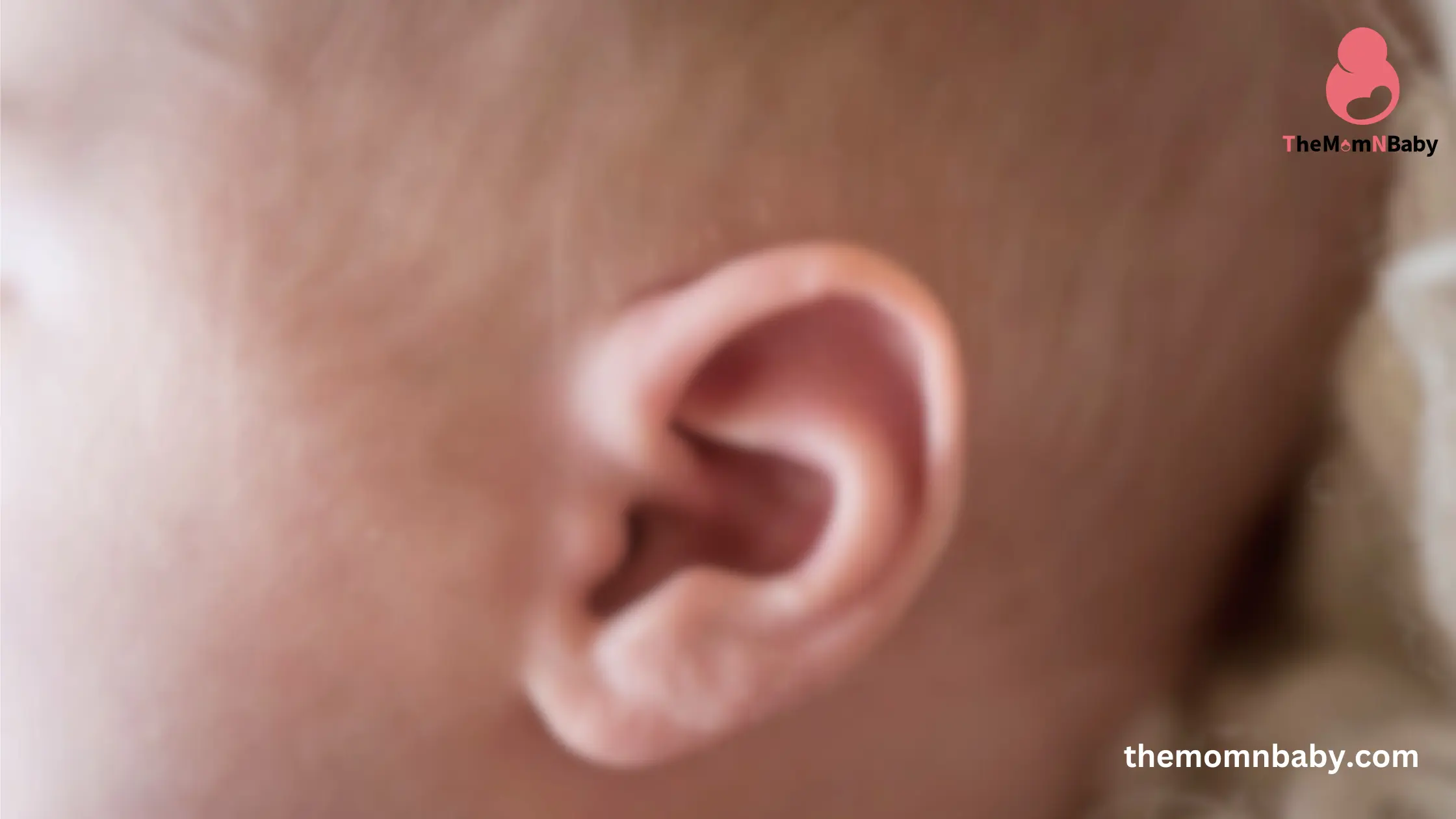
Hello, parents! We all want our little ones to stay healthy, right? Sometimes, toddlers get ear infections, and we might wonder if these infections can spread to others. It’s like asking if a cold can be passed to friends.
Well, figuring out if toddler ear infections are contagious is important. While it’s not a simple yes or no, we’re here to learn about how these infections work and whether they can affect other people. So, let’s dive in and find out more about these ear infections and how they relate to being contagious.
Are Toddler Ear Infections Contagious?
Understanding Toddler Ear Infections.
Ear infections, which doctors call otitis media, happen when the middle part of the ear gets swollen because of fluid building up behind the eardrum. This is something that happens a lot in kids under 5, especially in toddlers. Toddlers are more likely to get these infections because of the way their Eustachian tubes are made. These tubes connect the middle ear to the back of their throat. In little kids, these tubes are shorter and more flat, which makes it easier for germs like bacteria and viruses to get into their ears.
Causes of Toddler Ear Infections
Hey, Let’s talk about why some ear infections in toddlers can be contagious. Contagious means that it can spread from one person to another, like passing a ball to a friend. So, here are some reasons why this can happen:
Bacterial Infections:
- Sometimes, tiny creatures called bacteria can get into a toddler’s ear and cause an infection. These bacteria can be passed from one child to another when they play together or touch the same things. This is why some ear infections can be contagious, like sharing a cold with a friend.
Colds and Sneezes:
- Have you heard of the common cold? It’s when we get sniffles and sneezes. Well, these colds can sometimes lead to ear infections. Since colds are contagious and can spread easily, the ear infection might also spread if the cold passes to someone else.
Viruses in the Mix:
- Ear infections caused by viruses are a bit less contagious than bacterial ones. But the viruses that bring these infections can still be shared. For example, if someone has a cold and coughs near your toddler, those germs can make their way to your child’s ear and cause an infection.
How Do We Know If a Toddler Has an Ear Infection?
Infants and young babies can’t express their ear pain in words, so watch out for these indicators:
1. Ear Pain:
- You might notice that your little one starts tugging at their ears or even cries when they lie down. These could be signs that their ears are bothering them.
2. Fever:
- Sometimes, when there’s an ear infection, your child’s body temperature might go up a bit. So, if you feel like they’re warmer than usual, it’s a good idea to keep an eye on it.
3. Irritability:
- You know how sometimes when we’re not feeling well, we can get a bit cranky? Well, the same goes for our little ones. If your toddler seems extra fussy and hard to calm down, it could be because their ears are causing them discomfort.
4. Difficulty Sleeping:
- Have you noticed that your child is having trouble sleeping? Ear infections can make lying down pretty painful, and that can make it tough for them to sleep peacefully through the night.
5. Reduced Appetite:
- You might notice that your child isn’t as interested in their food as usual. Ear pain can actually make them lose their appetite temporarily.
6. Fluid Drainage:
- Sometimes, when an ear infection gets a bit serious, you might see a fluid that looks like pus coming out from their ear. It sounds scary, but it could mean that the eardrum has a little tear in it.
Remember, if you notice any of these signs in your child, it’s a good idea to talk to their doctor. They can help figure out what’s going on and guide you on the best steps to take. Your child’s health is important, and taking care of them is what you do best!
Can Toddlers Spread Ear Infections?
One of the primary concerns for parents is whether their child’s ear infection can be passed on to others. The answer lies in understanding the nature of ear infections. While ear infections themselves are not directly contagious, the underlying viral or bacterial infections that cause them can be.
For instance, if a toddler’s ear infection is caused by a viral infection like the flu or a cold, the virus itself can certainly be contagious. Coughing, sneezing, or touching contaminated surfaces can spread the virus to other children or family members. Bacterial infections causing ear infections can also spread through close contact and shared items like utensils or toys.
When little kids get ear infections, parents might worry if these infections can spread to others. Let’s find out if toddler ear infections are contagious and how we can prevent them.
Getting Help for Contagious Ear Infections: What the Doctor Does
When a baby or child has an ear infection, it’s important to see a doctor. If kids have lots of ear infections, it could affect their hearing and talking. How ear infections are treated depends on how bad they are and how old the person is.
Contagious Treatment Based on Age
Sometimes, ear infections get better on their own in a few days, and doctors don’t give medicine right away. This is because using too much medicine can make germs become strong and not scared of the medicine anymore.
Doctors might wait a bit if the pain isn’t very bad and hasn’t been around for long. Many kids with ear infections don’t need medicine to get better, and they won’t get very sick.
- if a baby under six months has an ear infection, doctors will usually give medicine right away. This is because the infection can be dangerous for such a young baby.
- To help with the pain and fever, doctors might say it’s okay to use medicines you can buy at the store. But always check with the doctor first, especially if the baby is less than six months old because they can’t use some of these medicines.
- The doctor might suggest the tubes if kids get lots of ear infections (more than three in six months), have fluid in their ears for a long time, or their eardrum doesn’t work well. The tubes usually fall out on their own after about one and a half years as the child grows.
If the pain is really bad from the start or it gets worse after a few days, the doctor might give a special medicine called an antibiotic.
Sometimes, if kids keep getting ear infections or if they have fluid in their ears for a long time, doctors might suggest putting small tubes in the ears. These tubes help drain the fluid and keep the air pressure right. It’s not something grown-ups often do, just kids.
How to Stop Contagious Ear Infections and Keep Others Safe
We can do a few things to stop ear infections and make sure they don’t spread:
- Frequent Handwashing: Encourage everyone in the household to wash their hands regularly to prevent the spread of viruses and bacteria.
- Vaccines Are Helpers: Vaccines are like superheroes that help protect us from getting sick. Talk to your doctor about vaccines that can stop some of these ear infections from happening.
- Healthy Habits: Eating yummy fruits and vegetables, getting enough sleep, and staying active can make your child’s body strong and ready to fight off any “ear bugs” that might come their way.
- Breastfeeding: If possible, breastfeeding can help boost your child’s immune system, providing natural defenses against infections.
- Avoid Smoke Exposure: Exposure to secondhand smoke increases the likelihood of ear infections. Make sure your child’s surroundings are free from smoke.
- Limit Pacifier Use: Overuse of pacifiers, especially in environments where they could easily pick up germs, can contribute to ear infections.
- Prompt Medical Attention: If your child shows symptoms of an ear infection, consult a pediatrician. Timely treatment can prevent the infection from worsening.
- Sharing Germs: If you know a friend has an ear infection, it’s a good idea to give them some space while they’re getting better. Just like you wait for your turn to use the swing at the park!
In conclusion, while toddler ear infections themselves are not directly contagious, the infections that lead to them can be. Awareness of the causes, symptoms, and preventive measures can help parents take proactive steps to protect their children and prevent the spread of infections. If your child shows signs of an ear infection, seeking medical advice is essential for proper diagnosis and treatment.
Also Read : Navigating Childhood with Eczema: Tips and Insights
Frequently Asked Questions About Contagious Ear Infections
Q. Why can some ear infections be contagious?
– Ear infections caused by certain germs, like bacteria and viruses, can sometimes pass from one person to another when they’re close.
Q. How do ear infections spread to others?
– Ear infections can spread when someone with the infection coughs, sneezes, or shares things with others.
Q. Can I catch an ear infection from a friend?
– Yes, if a friend has a contagious ear infection, you might catch it if you’re very close to them.
Q. What happens if my baby has a contagious ear infection?
– If your baby has a contagious ear infection, it’s important to be careful around them and follow good hygiene to avoid spreading the germs.
Q. Can my child go to school with an ear infection?
– As our suggestion is ask your doctor. If the infection might be contagious, the doctor might suggest keeping your child home for a little while.
Q. How can we stop spreading a contagious ear infection?
– You can wash hands a lot, avoid sharing toys or things that go in the ear, and follow the doctor’s advice to keep others safe.
Q. Is there a shot to prevent ear infections from spreading?
– Not exactly, but some shots can prevent illnesses that might cause ear infections. Talk to the doctor about vaccines.
Q. When should I tell the doctor about a contagious ear infection?
– If someone has signs like ear pain, fever, or trouble hearing, it’s a good idea to talk to the doctor. They can give the best advice.
Q. Can adults catch contagious ear infections too?
– Yes, grown-ups can catch them if they’re very close to someone with a contagious infection.






